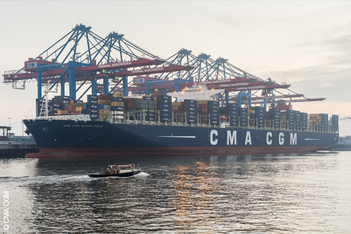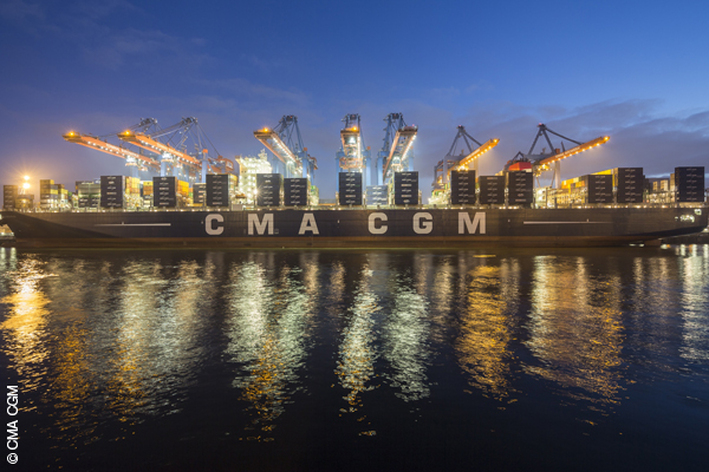The docking operation is shown on a video that you can view on the gCaptain site, or on YouTube - I didn't embed it as it's fairly long. I'd like to have seen more of the final pier approach, especially because the tugs are being used (as they are in much of the world) on lines - here in the US we'd be more likely to push directly on the ship. Still, I could imagine what was happening, and the orders I'd expect to hear if I were operating one of the tugs.
My career has embraced a range of tugs: from old but still useful single-screw boats built in the 1940s, to an ATB, to reverse tractors built just a few years ago. Previous to that I sailed deep-sea in oil tankers.
For much of that time shipping and tug work seemed to go on relatively unchanged. Containers came in - I remember the SeaTrain ships in the 1960s - and breakbulk began to disappear. The era of the supertanker arrived, though I never sailed in one. ITBs and then ATBs became more common. But in spite of these obvious changes, many of the older types of tugs and ships continued to be seen. For us on the US East Coast, at least, some of the new developments were, for a long time, more the exception than the rule.

Of course, from the sailor's point of view this can be a mixed bag. Improved communication with the office is useful, but can also subject the mariner to 24/7 micromanaging. Recordkeeping can aid regulatory compliance, but it's mushroomed to the point where it can also interfere with watch duties. Training requirements help maintain a workforce that can safely operate the new tech, but they put a heavy burden on the sailor to keep up his qualifications.
Another change - a sad one from my point of view! - is that the speed and efficiency of modern cargo operations, and the paranoia surrounding port security, have combined to rob the modern seaman of one of the former great benefits of working at sea: the chance to see other countries, meet other people, and expand your own view of the world. For many modern seamen, their world has shrunk to the gunwales of their ship! Some sailors never leave their ship between the time they report and the time they're relieved. A generation of seamen have been deprived of the interesting times (some good, some admittedly not so good - but all interesting) that the old salts enjoyed. Could another Felix Luckner arise out of this generation? It would seem like a long shot!
Are you working on one of these modern giants - or in some other leading-edge facet of the industry, such as LNG? Let us know your take on shipboard life, high-tech watchstanding, and opportunities to get ashore, by leaving a comment. We're interested in your point of view!

 RSS Feed
RSS Feed